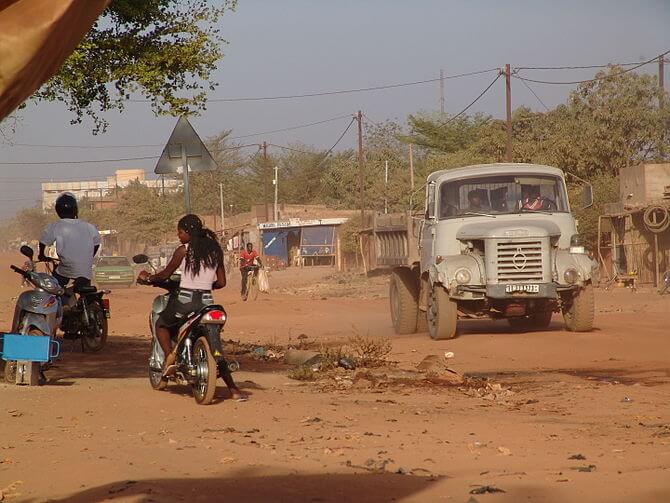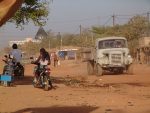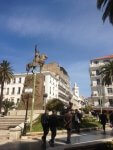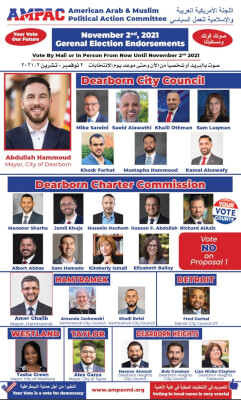Waiting for A Dream in Africa
The young leaders in Africa are waiting to see if this dream comes true, the same as the young Arabs, who once were inspired by Obama’s story, rather than Osama’s.
By Abdennour Toumi
President Macron’s appeasement speech from the podium of Ouagadougou University was highly anticipated, in particular by the African youth, leaders and the progressive elite across the region. Since his election in May, President Macron has shown an unprecedented overture toward the African continent; notably in the Sahel, making the first visit to Mali, meeting the Moroccan King cordially in a State visit to Morocco, and next week is heading to Algeria for a State visit, thus giving a new tone and a new paradigm in his Africa foreign policy.
Lately his meeting with the Sahalian leaders in a mini-summit in the Élysée Palace was unusual because of his skepticism toward the African leaders on the thorny question of the “War on Terror” in the Sahel and West Africa. Though the expectation of President Macron’s address to Africans was significant due in particular to the high tension between French administrations both past and present, and the African public opinion and the love-hate (if not suspicious) relations because of colonization.
For the Burkinabe elite and public opinion in general, it is believed that France’s Intelligence Service had a hand in the tragic disappearance of President Thomas Sankara in 1987, followed by the conditional support to corrupted regimes across the francophone States.

Past French presidents in the Élysée Palace and the Quai-d’Orsay put their utopian agenda in the perspective of a continuity of neo-colonialism imperatives. However, this is the first time that a French president, born two decades later post-independence of African States, doesn’t have personal relations with African leaders (fathers and sons) and intellectually understands the continent’s development and security challenges.
President Macron has participated in the A.U.-U.E. Summitin Abidjan; his speech at Ouagadougou University is aimed to change the historical trajectory in the region, and assure that things will not continue “business as usual” for the African skeptics. A speech that would re-polish the image of France in the region is critical at this point, and this is the President’s strongest point; he knows how to frame his message.
But the elite and the political opposition are already manifesting their disappointment, according to yesterday’s Jeune Afrique on-line article. The choice of Ouagadougou University as a tribune to address the Africans was not a consensual pick. The Sahel is in tumultuous deadly sandstorms from al-Qae’eda in the Sahel, suffering attacks on civilians and French and African Union troops on the ground, and further south by the Boko Haram Group, which has created further national security concern for France
Yet this rhetorical speech is an implicit endorsement of the continuity of the corrupted regimes. Dr. Fatimatou Sheikh bey, a local community organizer with the African Women’s Association in Tremblay (Seine-st-Denis Department), said in consequence, “the locals did not expect too much from the professorial speech that is undoubtedly Obamanian, eloquent, well-delivered, and not challenging the regimes for ‘Change,’ just embarrassing the Burkanane President.” Plus, “it is his job to bring electricity to poor people’s home, not me,” President Macron said in an interaction style with a local student.
As an aside, Ouagadougou University is named after President Thomas Sankara, (the African Ché), how full of symbol and irony that a French President lectured an entire generation, who still mourn their anti-colonialist leader, who wanted to end France’s patronism and wanted Africa for the Africans like Patrice Lumumba in the ’60’s.
Today most of the African universities are creating thousands of unemployed, not because of poor academic programs being pursued, but because of the lack of opportunities after graduation, creating general feelings of despondency and hopelessness. This is attributable to the unwise public policy in terms of education and employment in the region, whether in Burkina Faso, Ivory Coast/Côte d’Ivoire or elsewhere.
The choice of Ouagadougou University is a geopolitical one, and mainly due to the need of the Burkinabe regime to play a major role in the exhausting fight of terrorism in the Sahel and West Africa. This will be the case with Mali and Niger, of which their records in any political overture toward the opposition is questionable, despite whether free elections are held. President Macron must convince the youth in the region to divorce themselves from the colonialist “fault” mentality, and in this stance he mentioned in his speech to “stop blaming us.”
The popularity of this political selling point in Africa in general is still an attractive brand.
The leaders are disconnected from the majority of the conventional African elite and the youth, who are dealing with an existential problem based on their marginalization and exclusion from the debate and the decision-making process.
As a result they are dying in the Algerian desert and the Mediterranean Sea, and worst have been exposed publicly to human trafficking and slavery auctions, when fleeing poverty and wars. They are left alone without any protection from the so-called Humanitarian INGOs, UNHCR and ECHO, and are the victims of bold militarized foreign policy of the West.
Nonetheless, the point of President Macron’s speech is to bridge a new dynamic based on responsibility and understanding between those of former colonization and a new generation that hopes for a better life either at home or elsewhere if possible.
The speech at Ouagadougou University sounded and orchestrated like President Obama’s speech at Cairo University in 2009, when he eloquently lectured the Arab regimes, the elite and the youth. As a result years later the region boasted ruined battlefields.
Macron encourages the reading of intellectual pioneers of the region, religious rapprochement, more rights for women and allowing the youth to have an analytical spirit in order to understand the real challenges facing the continent.
Except President Macron’s leadership style abroad, like at home is a narrative about his successful story in France’s politics. The young leaders in Africa are waiting to see if this dream comes true, the same as the young Arabs, who once were inspired by Obama’s story, rather than Osama’s.


- The Israeli-Palestinian Conflict: Is the Neither-Peace-nor-Security As-sumption Dominating Again? - June 7, 2021
- Algeria: “I Can See Clearly Now” - August 5, 2019
- Majesty Mohammed VI and General Gaïd Salah Tear Down This Wall! - July 29, 2019

























